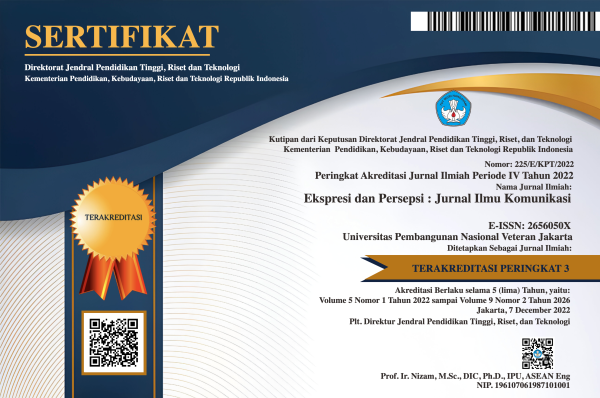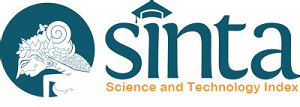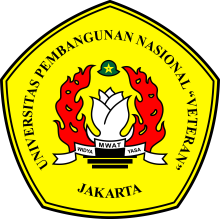Pengaruh Media Sosial dan Komunikasi Publik Gubernur terhadap Opini Publik (Studi Analisis Regresi Pada Kepemimpinan Gubernur Kepulauan Bangka Belitung Periode 2017-2022)
DOI:
https://doi.org/10.33822/jep.v7i1.7224Keywords:
public communication, public opinion, social mediaAbstract
This study aims to analyze the influence of social media and public communication of the governor on public opinion, using regression analysis on the leadership of the Governor of Bangka Belitung Islands for the period 2017-2022. The research method used is quantitative with a positivist paradigm. The population of this study is the residents of Bangka Belitung aged 17 years and above, who have the right to vote, amounting to 913,239 people. The multistage cluster sampling technique was used to obtain a sample of 600 respondents. The data analysis technique used is multiple regression analysis. The results of the coefficient of determination test which aims to measure the percentage influence of social media and the governor's public communication on public opinion indicates 19.6%, the remaining 80.4% of the variables in public opinion still cannot be explained by the variables in this research. The correlation coefficient is 0.443. This value shows that there is a positive relationship between social media variables and public communication with a moderate influence on public opinion variables. The results of testing the statistical significance of the variable influence of social media and public communication on public opinion have a positive and significant effect.
References
Amrullah, Umar, & Suharli, L. (2023). Pengaruh Strategi Komunikasi Politik terhadap Partisipasi Politik Masyarakat dengan Perilaku Pemilih sebagai Variabel Moderasi dalam Pemilihan Gubernur Nusa Tenggara Barat Tahun 2018 di Kota Sumbawa. JIIP (Jurnal Ilmiah Ilmu Pendidikan), 6(4), 2922–2930.
Chen, K., & Tomblin, D. (2021). Using data from reddit, public deliberation, and surveys to measure public opinion about autonomous vehicles. Public Opinion Quarterly, 85(1), 289–322. https://doi.org/10.1093/poq/nfab021
Cinelli, M., de Francisci Morales, G., Galeazzi, A., Quattrociocchi, W., & Starnini, M. (2021). The echo chamber effect on social media. Proceedings of the National Academy of Sciences of the United States of America, 118(9). https://doi.org/10.1073/pnas.2023301118
Daud, R. S. (2021). The Role of Political Communication in Shaping Public Opinion: A Comparative Analysis of Traditional and Digital Media. Journal of Public Representative and Society Provision, 1(2), 63–69.
Dong, X., & Lian, Y. (2021a). A review of social media-based public opinion analyses: Challenges and recommendations. Technology in Society.
Fatema, S., Yanbin, L., & Fug, D. (2022). Social media influence on politicians’ and citizens’ relationship through the moderating effect of political slogans. Frontier in Communication, 7, 95549. https://doi.org/doi:10.3389/fcomm.2022.95549
Ferrara, E., Chang, H., Chen, E., Muric, G., & Patel, J. (2020). Characterizing social media manipulation in the 2020 U.S. presidential election. First Monday, 25(11). https://doi.org/10.5210/fm.v25i11.11431
Firliani, Ibad, N., Nauval, & Nurhikmayati, I. (2019). Teori Throndike dan Implikasinya dalam Pembelajaran Matematika. Prosiding Seminar Nasional Pendidikan FKIP UNMA, 823–838.
Hamidy, F. (2013). Tabot Sebagai Identitas Masyarakat Kota Bengkulu Menurut Perspektif Bergerian. Universitas Airlangga.
Khan, S., Umer, R., Umer, S., & Naqvi, S. (2021). Antecedents of trust in using social media for E-government services: An empirical study in Pakistan. Technology in Society, 64, 101400. https://doi.org/10.1016/j.techsoc.2020.101400
Kiratli, O. S. (2023). Social Media Effects on Public Trust in the European Union (Forthcoming in Public Opinion Quarterly). Economic Integration and Public Opinion, 1(March), 1–37.
Kleinnijenhuis, J., Van Hoof, A. M. J., & Van Atteveldt, W. (2019). The combined effects of mass media and social media on political perceptions and preferences. Journal of Communication, 69(6), 650–673. https://doi.org/10.1093/joc/jqz038
Li, W. (2023). The Influence of Social Media Sentiment on Online Public Opinion in the Post-truth Era. Journal of Education, Humanities and Social Sciences, 8, 1015–1020.
Muhibbin, S. (2013). Psikologi Pendidikan dengan Pendekatan Baru. Bandung: PT Remaja Rosdakarya.
Mursyidi. (2019). Kajian Teori Belajar Behaviorisme dan Desain Instruksional. Al Marhalah Jurnal Pendidikan Islam.
Putri, A. B., Pahrevi, D., Saragih, R., & Napitupulu, F. (2023). Monday Inspiration Di Instagram @ perhumas _ indonesia Perspektif Peter L Berger. Jurnal Kompetensi Universitas Balikpapan, 16(1), 7–17.
Qadri, M. (2020). Pengaruh Media Sosial Dalam Membangun Opini Publik. Qaumiyyah: Jurnal Hukum Tata Negara, 1(1), 49–63. https://doi.org/10.24239/qaumiyyah.v1i1.4
Rim, H., Lee, Y. A., & Yoo, S. (2020). Polarized public opinion responding to corporate social advocacy: Social network analysis of boycotters and advocators. Public Relations Review, 46(2), 101869. https://doi.org/10.1016/j.pubrev.2019.101869
Rohim, S. 2016. Teori Komunikasi: Perspektif, Ragam, dan Aplikasi. Jakarta: PT Rineka Cipta.
Setia, P. (2021). Membumikan Khilafah di Indonesia: Strategi Mobilisasi Opini Publik oleh Hizbut Tahrir Indonesia (HTI) di Media Sosial. Journal of Society and Development, 1(2), 33–45.
Setiawan, R., Muqsith, M. A., Avzalova, E., Sulthan, M. F., & Mladenov, S. V. (2022). Political Communication Through New Media in Local Elections in Indonesia. SALAM: Jurnal Sosial Dan Budaya Syar-I, 9(1), 1–12. https://doi.org/10.15408/sjsbs.v9i1.24424
Siagian, H. F. (2015a). Pengaruh dan Efektivitas Penggunaan Media Sosial Sebagai Saluran Komunikasi Politik dalam Membentuk Opini Publik. Al-Khitabah.
Smith, M. B. (1971). A psychologist's perspective on public opinion theory. Public Opinion Quarterly, 35(1), 36–43. https://doi.org/10.1086/267865
Sugiarti, E., Ruliana, P., & Irwansyah. (2020). The Influence of Political Communication Toward Public Opinion About the Victory of the Regent and Vice of the Regent of Tulungagung. Advances in Social Science, Education and Humanities Research, 423(32), 99–118. https://doi.org/10.2991/assehr.k.200325.010
Susanto, E. H. (2017). Media Sosial sebagai Pendukung Jaringan Komunikasi Politik. Jurnal ASPIKOM, 3(3), 379–398. https://doi.org/10.47467/dawatuna.v3i3.2621
Tambunan, N. (2018). Pengaruh Komunikasi Massa Terhadap Audiens. Jurnal Simbolika: Research and Learning in Communication Study, 4(1), 24. https://doi.org/10.31289/simbollika.v4i1.1475
Tang, Y., & Wen, Q. (2023). An Empirical Study of the Impact of Social Media Use on Online Political Participation of University Students in Western China. Journalism and Media, 4(1), 75–89. https://doi.org/10.3390/journalmedia4010006
Zaenal, M. (2016). Komunikasi Politik. Pustaka Setia.
Zempi, C. N., Kuswanti, A., & Maryam, S. (2023). Analisis Peran Media Sosial dalam Pembentukan Pengetahuan Politik Masyarakat. Ekspresi Dan Persepsi: Jurnal Ilmu Komunikasi, 6(1), 116–123.
Downloads
Published
Issue
Section
License
Copyright (c) 2024 Listya Anindita

This work is licensed under a Creative Commons Attribution-NonCommercial 4.0 International License.














